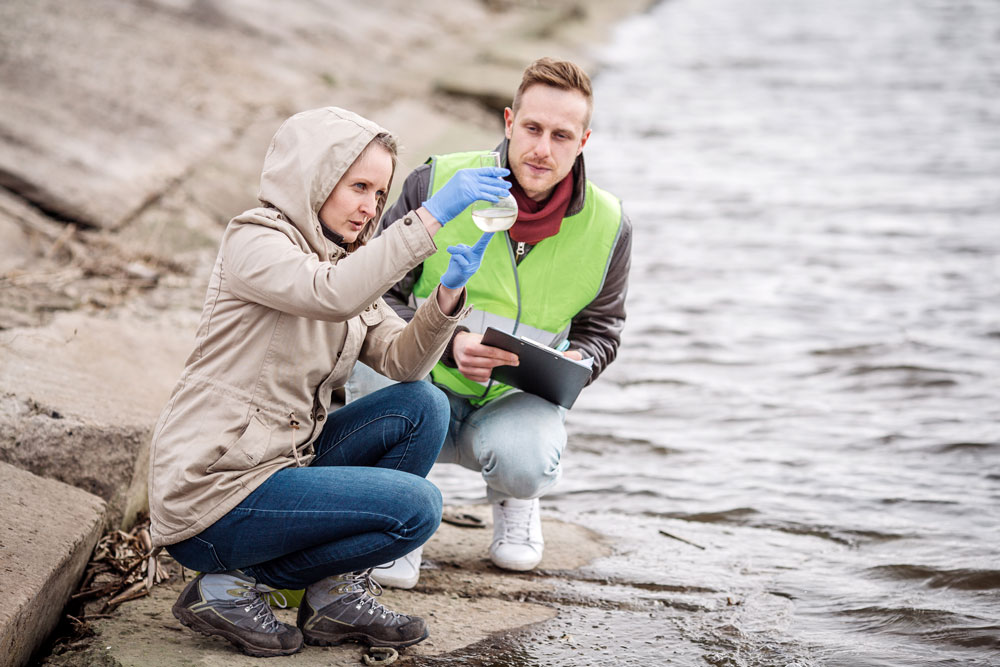‘One Health’ certificate connects health sciences for better public health future
Graduate calls program the best decision of grad school
By Anthony Rodriguez

Tiffany Claeys’ career in health sciences was jump-started after she took an undergraduate course in immunology. She was fascinated and started to learn everything she could about it.
“I think that the immune system is one of the most complex systems, especially the human immune system,” she said. “It affects every single day of our lives. It’s beautiful.”
She leaped right into her doctorate at the Medical College of Wisconsin, where she began her research on the immune system and bacterial infections affecting lymph nodes in children. Four years later, she found herself transferring to The Ohio State University to complete her PhD in biological and biomedical sciences after her advisor landed a faculty position in the College of Medicine.
Finding One Health
At Ohio State, she discovered the Global One Health certificate that connected with her scientific interests in infectious diseases and public health.
“I was really excited that it was even a thing,” Claeys said. “It was a really great way to accentuate my strong background in research. And it gave me more options to move my career goals around.”
The Global One Health certificate is a five-course education and training program that teaches the links among human, animal and environmental health, and how to make an impact in disease prevention and mitigation.
It integrates the health sciences fields to address complex health problems we face today and will face in the future.
“We need more educated and trained practitioners in One Health that have the knowledge and skills to address public health issues,” said Michael Bisesi, vice dean for academic affairs and professor of environmental health sciences. “Global One Health can expand the scope of qualifications and capabilities of working professionals and prepare the next generation of public health professionals.”
It’s this preparation and knowledge that could help public health professionals avert the next pandemic, Bisesi said.

COVID-19: A One Health issue
It’s now known that COVID-19 found its way to humans through infected bats. Recent data also has shown COVID-19 can be carried by white-tailed deer. In the early months of the pandemic, Claeys recognized the potential for it to become a much larger issue that required public health intervention.
After starting the courses in the certificate, she learned just how prevalent a role the environment and animals play in human disease.
“I didn't realize how many diseases are actually acquired through our environment because of our interaction with animals,” Claeys said. “I always knew that that was a big part of it. But because I was a researcher in mycobacteria, I always thought it was in other countries.”
“I never really thought about it as something that we deal with here in the U.S. as much until I took these courses and I realized that no, it's a lot of our diseases – most of our diseases. Especially a lot of the ones that are emerging now are because of that interface between humans and their environment and the animals that surround them.”
‘Best decision I made in grad school’
After earning her PhD and Global One Health certificate May 2021, Claeys accepted a position as a scientist at a cell and gene therapy organization. It’s still a young field, she said, but it wouldn’t surprise her to see the impact a One Health approach could have.
Claeys said she has been encouraging others to take up the Global One Health certificate at Ohio State.
“It’s beneficial, even if you’re not planning on going into public health,” she said. “What you learn helps you in your day-to-day life and makes a difference in the way that you see the world.”
“For professional development, it shows employers that you’re willing to put in the extra work for things you care about. The best decision I made in grad school was to get this certificate because on a personal level, it was interesting and exciting and fulfilling. Career-wise, it helped me get a job I love.”
Take the next step to enhance your degree
Learn how the Global One Health certificate can elevate your education and career.
About The Ohio State University College of Public Health
The Ohio State University College of Public Health is a leader in educating students, creating new knowledge through research, and improving the livelihoods and well-being of people in Ohio and beyond. The College's divisions include biostatistics, environmental health sciences, epidemiology, health behavior and health promotion, and health services management and policy. It is ranked 22nd among all colleges and programs of public health in the nation, and first in Ohio, by U.S. News and World Report. Its specialty programs are also considered among the best in the country. The MHA program is ranked 5th and the health policy and management specialty is ranked 21st.